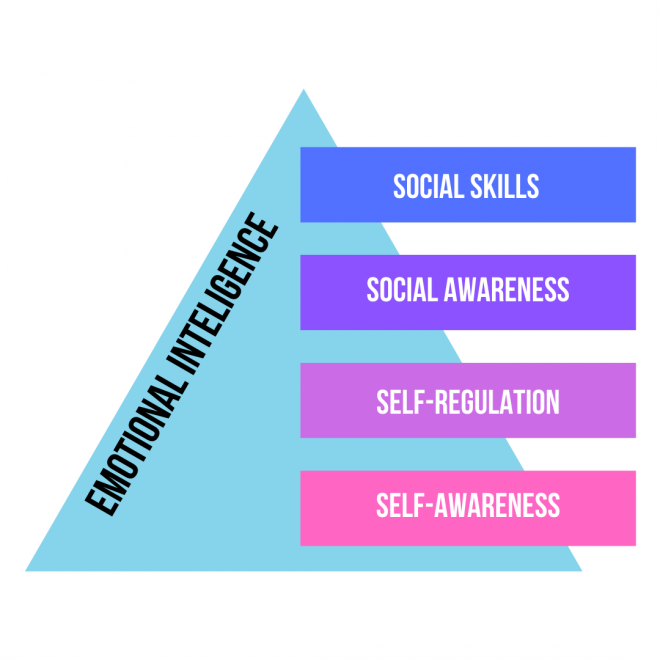10 de December, 2019

What qualities come to mind when you think of a good leader or a good boss? I am sure that no matter who you ask, the answer will include traits such as charisma, empathy, resilience, integrity, confidence, or decision-making skills. These are all characteristics of emotional intelligence.
Every good professional or entrepreneur must have a healthy dose of emotional intelligence to thrive at work. As a matter of fact, EQ (emotional intelligence) is more important than IQ to predict performance. But what does emotional intelligence look like at work?
As you can see with these examples, emotional intelligence is the capacity to be aware and in control of our emotions and manage them to adapt to our environment, succeed in our relationships with others, and fully appreciate ourselves. As with any other capacity, it can be broken down into a set of skills and behaviors that can be learned and developed.

Ready to start on your journey towards emotional intelligence and become a better team player, entrepreneur, or boss at work? Here are a few questions you can ask yourself every day to raise your awareness and foster your emotional intelligence.
Another great way to increase your emotional intelligence and leadership skills is to practice mindfulness. It promotes emotional regulation and mitigates impulsivity by introducing a necessary space of observation and acceptance between the stimuli (what happens to us) and our response. And mindfulness is not only self-reflective; you can be mindful of others as well, which will increase your compassion and ability to understand those around you.
Use your IQ to increase your EQ through study and practice. As a leadership and executive coach, I work with clients on their emotional intelligence every day. Following the approach used by Chade-Meng Tan, author of Search inside Yourself, I focus on mindfulness as the base for emotional intelligence. We must see ourselves objectively and perceive our emotions with a higher level of clarity and resolution to become the best version of ourselves, in life and at work. My clients already have the expertise and the intelligence to complete their jobs, but improving their mindfulness and social awareness maximizes their personal and professional potential.
____________________________________________________________
Do you feel stuck or anxious about the future? Do you feel it’s time to take a leap to keep growing in your career or business? No matter your situation, this free guide will walk you through my coaching process to get you moving and making progress. Get your copy now!
¿Te resulto informativo? Síguenos en @icatalyze para más contenido como este.

Nowadays, hard skills are no longer necessarily enough to achieve a leadership position in companies. The consulting firm Michael Page points out that out of 100 people hired, 13 of them fail or abandon during the trial period, and 1 in 3 new employees leave before their first year is over. The main reason […]
Ver más »
This post is written in honor of International Women’s Day. We live in a moment in time in which the world has evolved and important advances have been made on a global scale; however, the role of women in the world continues to have an enormous area of opportunity, both in society and in the […]
Ver más »
Recent circumstances have made us adopt new ways of living our day to day. Although it seems that we are coming out of the health crisis, many of the behaviors adopted to prevent the spread of the coronavirus have become established in our daily activities with no turning back. While the end of the “confinement” […]
Ver más »